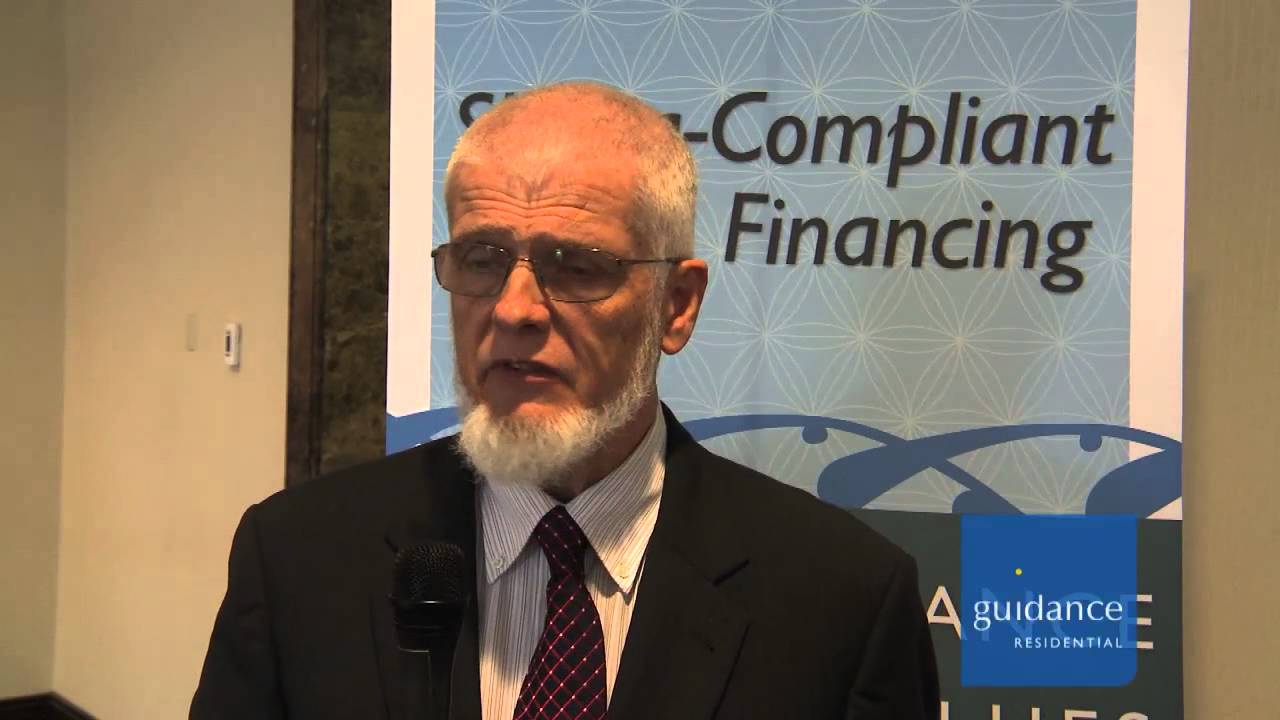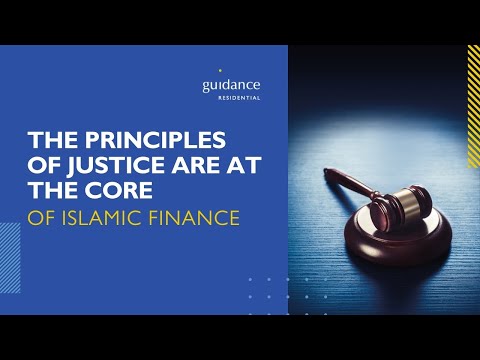Talking About Guidance Residential: A Series

By Yusuf Talal DeLorenzo
Talking About Guidance Residential is a six part series designed to help Muslims have a clearer understanding of Islamic finance in general and of Islamic home finance and Guidance Residential in particular. Each installment is an informal ‘Talk’ such as one might have with a friend. While the first ‘Talk’ is concerned with some of the fundamentals underlying Islamic Finance, subsequent ‘Talks’ will deal more specifically with home finance and especially with the Shariah-compliant home finance products offered by Guidance Residential and the characteristics that distinguish it from both conventional and other Islamic home finance products.
The ‘Talks’ are presented by Yusuf Talal DeLorenzo, an established authority on Islamic Finance since his publication in 1997 of the three volume ‘Compendium of Legal Opinions on the Operations of Islamic Banks’ in English and Arabic. Since that time, Shaykh Yusuf has advised over forty different global financial institutions on matters of Shariah compliance. He is presently Chairman of several international Shariah Supervisory Boards, including the Dow Jones Islamic Indexes, the Thomson Reuters Islamic Interbank Benchmark Rate, and others. He also serves as a member of the independent Shariah Board that supervises the activities of Guidance Residential. Shaykh Yusuf was a member of the Shariah Board of AAOIFI (the Accounting and Auditing Organization of Islamic Financial Institutions) and the founding Board of Governors for INCEIF (the International Centre for Education in Islamic Finance). He presently serves as a member of ISRA (the International Shariah Research Academy) and the advisory council at the Hamdan bin Mohammad Smart University. His translations from Arabic, Farsi, and Urdu include ‘Imam Bukhari’s Book of Muslim Morals and Manners’ and, most recently, ‘Al-Ghazali on the Lawful and the Unlawful.’
Today’s Talk: Islamic Business or Business as Usual?
What is Islamic home finance? Or home finance conducted in a Shariah compliant manner? And how does that sort of home finance differ from other, conventional methods of home finance, commonly known as the mortgage business? Finally, how is that difference significant to you and me, the consumer? What does it mean for us?
The simplest of explanations, in answer to the last question, is that when you use Shariah compliant financing to purchase your home you can sleep in it peacefully, with a clear conscience, secure in the knowledge that you have purchased your home in a way that does not involve your having broken or stretched any Shariah rules. Most importantly, the financing of your home was accomplished without interest.
Let’s turn to the first question now. What is Islamic home finance? We already know that the end result is two things; a new house to live in and a clear conscience. But where does Islamic home finance begin?
Injunctions against interest occur at five different places in the Quran.
Those who live on riba shall rise up before Allah like people who have been demented by the touch of Shaytan…{2:275}
Allah has place His curse on riba while He has blessed charity with increase {2:276}
O you who believe! Fear Allah and waive whatever remains due to you from riba {2:278}
O you who believe! Do not live on riba, doubling and redoubling your wealth many times over {3:130}
That which you seek to increase by riba will not be blessed by Allah {30:39}
In addition, there are a great many hadiths from the Prophet, upon him be peace, that condemn and prohibit riba, whether paying it, or receiving it, or being a party to it in any way.
Then, the first and most important aspect of Islamic home finance is that it avoids riba. In addition, Islamic home finance in all of its complexity (and we will talk about that in another conversation) is based on principles from the Shariah that govern contracts and transactions. These begin with the Quranic injunctions:
O you who believe! Honor your contracts {5:1}
O you who believe! Consume not your wealth amongst yourselves falsely; instead let it be business on the basis of mutual agreement {4:29}
So, let’s get to the question that’s really on most people’s minds: What’s the difference? After all, the conventional mortgage business, despite the troubles it underwent during the financial crisis that began in 2007, is regulated by the US government and operates under a strict set of rules.
The major difference is one that stems from a fundamental principle. Every Muslim knows that charity is not the same as business. The moment one attempts to make a business out of charity, or even to use charity as a way to promote business, it is no longer charity. Charity depends on a sincere desire to help others; and the only way this desire may remain pure is for it to remain free of profits or benefits for the giver of charity. Again, once benefits enter into the matter, it is no longer charity. One of the forms of charity specified by the Shariah is lending, and the reward for doing so is not profit in this world, but blessings and a reward in the next world.
Who is it that will lend Allah a goodly loan, such that He will grant increase to him over and over? {2:245}
This is a verse that urges Muslims to spend their money in charity, and that promises a reward for the same in the hereafter. This is further explained at {57:11}.
However, while Muslims see borrowing and lending as a charitable activity, the same has become a major method for financing in the modern world. From a Shariah perspective, this is a perversion of an activity that should never involve profit.
What is worse, however, is that lending has been further perverted by the addition of interest. The modern, conventional (non-compliant with Shariah) mortgage is based on this perverted business model because it is a loan of money secured by a lien on property that is to be repaid in full with interest.
The significance of this fundamental difference between Islamic and conventional home finance is that Islamic home finance allows Muslims to conduct this all-important transaction (generally, the single largest financial transaction that most people will conduct in their lifetime) in accordance with their beliefs. What this means to individual Muslims will obviously differ from one individual to the next. For most of us, the opportunity to conduct this all-important transaction in a way that accords with the teachings of our faith is very welcome. When the costs are equal, or at least very close, the choice between a Shariah compliant financing and a mortgage is an easy one for Muslims.
* * *
Everyone knows the difference between business and charity, but when it comes to Islamic financial institutions some people tend to confuse one for the other. Moreover, I’ll close this talk with this point for the reason that it may be useful to remember when the subject comes up in a later talk in this series.
The obvious difference between the two activities is that one is expected to yield profits in this world where the yield of the other is a reward in the next world. Both activities, however, may bring blessings when one’s niyyah in doing business is to seek the pleasure of the Almighty by bringing real value to one’s family, one’s community, one’s clients or customers, or even to society in general. In other words, if one’s intentions in doing business are right, one may expect to profit in this world and the next.
Islamic financial institutions, like Guidance Residential, are businesses. The aim of such businesses is profit. At the same time, however, Islamic businesses deliver goods or services to their clients, or profits and benefits to their partners, in a manner that complies with the teachings of Shariah. As such the relationship between Guidance Residential and its clients may be considered a mutually beneficial one, in this world and the next.




